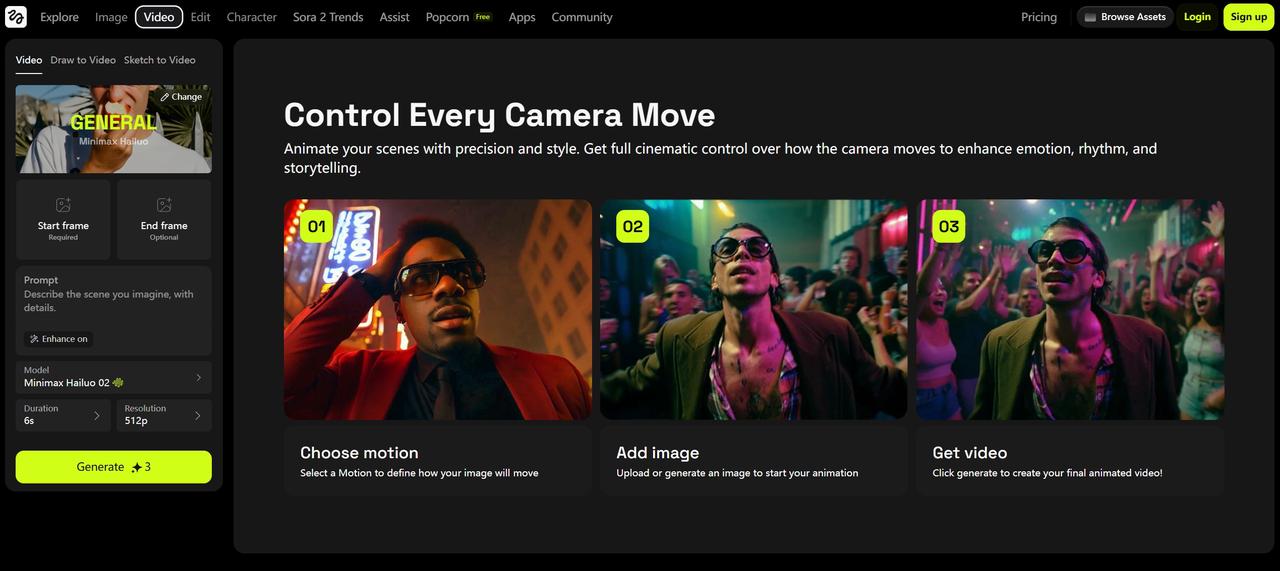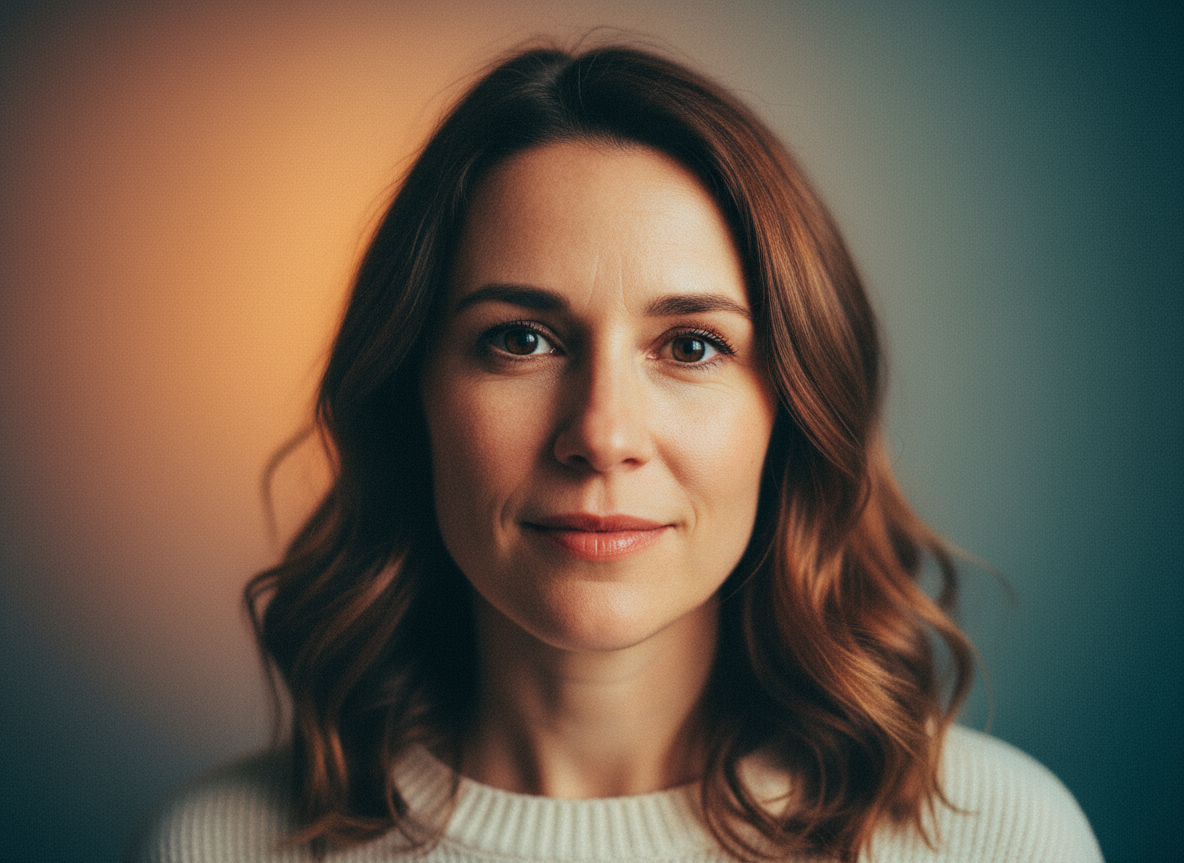Higgsfield AI Review: Are The Face Effects Useful Or Just A Gimmick?

A playful, fast tool that turns a selfie into a cinematic clip or talking avatar in minutes — but are the face effects genuinely useful, or mostly party tricks? Short answer: useful for personalization & social, cautious for anything that needs perfect, long-form fidelity.
Key takeaways
- Verdict: Mostly useful — great for quick personalization, ads, and UGC; not yet a substitute for professional VFX or long-form, identity-critical face work.
- Top strengths: cinematic camera controls, ready-made visual effects & presets, simple face-swap/talking-avatar flows.
- Biggest weaknesses: identity drift over longer clips, occasional rendering artifacts, ethical/privacy risks if used carelessly.
- Try it if: you want fast branded clips, social videos, or personalized UGC. Avoid using it for anything that must preserve a subject’s identity perfectly across long scenes (e.g., feature-length film face replacement) without heavy manual clean-up.
What is Higgsfield?
Higgsfield is an all-in-one AI image + video studio that offers text-to-image, image editing, image→video generation, and character/face features like still face-swap, video face-swap, and a Lipsync Studio for talking avatars. It exposes multiple models (Sora 2 for cinematic video, Veo 3.1 among others) and a long list of camera/VFX presets so creators can go from selfie → ad-ready clip quickly. (Higgsfield)
How I tested it
- Account & environment: free/entry tier with credit checks and a brief test of higher-quality outputs.
- Assets used: one neutral portrait headshot, a product photo, and a short 3–5 second brand image for image→video tests.
- Metrics: speed, realism, facial fidelity, lip-sync quality, temporal consistency (short vs longer clip), and export options/quality.
UI / UX
The UI feels modern and playful: large thumbnails, many presets grouped under “Image/Video,” and a clear upload → pick model → generate workflow. Face features (Face Swap, Video Face Swap, Lipsync Studio) are easy to find in the "Video" and “Character” section. There are frequent banners promoting models like Sora 2 and features like “Sora 2 Enhancer”
Image generation — hands-on
Higgsfield supports text→image, various editing models, and multi-reference inpainting. Portraits look punchy and camera-aware presets give instant lighting/cinematic vibes.
Concrete text-to-image example: Prompt: Cinematic headshot of a mid-30s woman, soft Rembrandt lighting, shallow depth of field, filmic grain, warm teal-orange color grade, 85mm lens. Expected result: photorealistic portrait, sharp facial details, creamy bokeh and stylized color grade — ideal for hero frames or thumbnails.
Concrete face-swap still example: upload a subject’s passport-style headshot + a target hero image, choose Face Swap, small smoothing amount, run—expect a plausible face transplant that keeps pose & lighting reasonable, with occasional edge artifacts around hair or background.
Observed strengths: portrait detail, quick lighting/camera presets, fast inpainting. Failure modes: background seams, identity drift when mixing many reference sources.
Video generation — hands-on
Higgsfield lists Sora 2 as its go-to cinematic video model and provides camera-control and VFX layers you can stack. The image→video flow lets you specify start/end frames, camera moves, depth, and grade.
Concrete image→video example (my test):
Model: Sora 2
Prompt / setup: A soft, lifestyle B-roll scene of a young woman walking through a cozy apartment filled with warm morning light. The camera glides slowly from right to left with a shallow depth of field. Natural motion, gentle hair sway, and realistic occlusion as she moves past foreground objects. Warm cinematic color grade.
Expected output: A warm, cinematic 4-second B-roll where the woman walks through a sunlit apartment, the camera gliding smoothly with natural depth and stable facial details.
Observations: Sora 2 can produce impressively filmic short clips fast. Motion is smooth for short sequences; longer sequences and fast, complex motion reveal temporal glitches and identity wobble if you’re animating faces heavily. Render times and quality vary by chosen model and enhancer options.
Character tools — the heart of the review
Higgsfield’s character toolbox includes:
- Face Swap
- Lipsync Studio / Talking Avatars
- Character Swap / Recast Studio
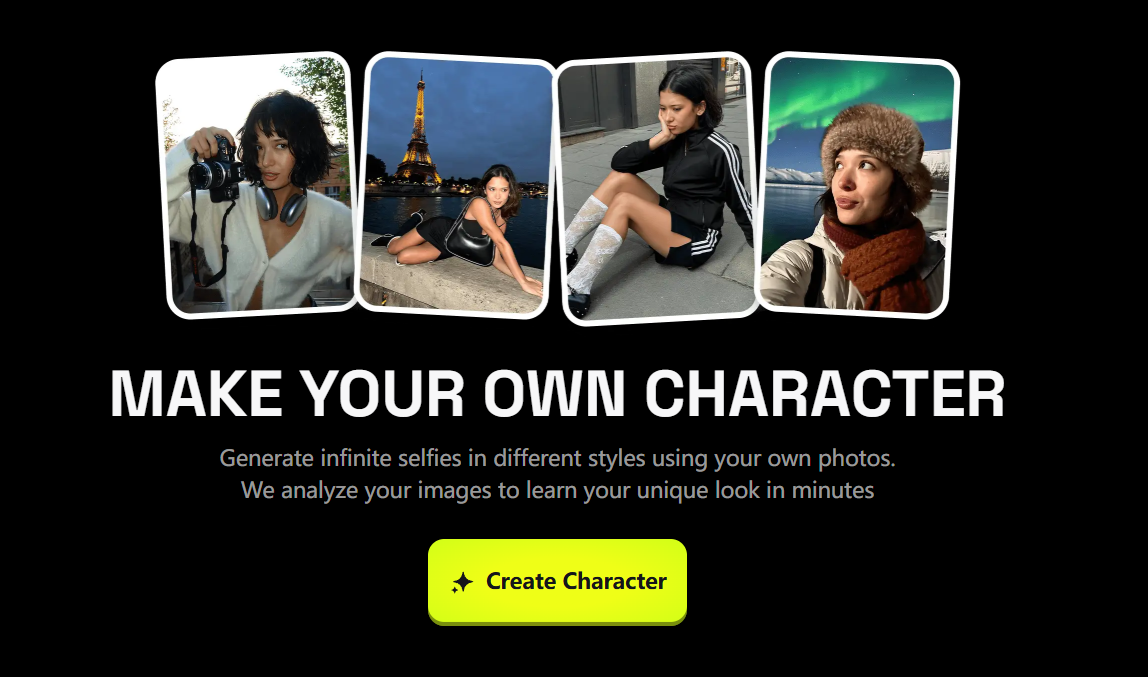
Assessment criteria
- Fidelity to source face: Good for short clips; best when source photo has similar lighting & angle to target.
- Expression transfer: Basic expressions transfer well; subtle micro-expressions sometimes flatten.
- Lip-sync believability: For short talking clips, lipsync is surprisingly decent (especially with “Kling Speak / Kling Speak next-gen” models), but close-up scrutiny shows occasional timing mismatch.
- Identity preservation vs uncanny valley: For casual social content — fine. For legal/ethical or realistic long-shot replacements — still risky.
Mini verdict by criterion
- Fidelity: ★★★★☆ (short clips)
- Expression nuance: ★★★☆☆
- Lip-sync: ★★★★☆ (for UGC/personalization)
- Production-grade replacement: ★★☆☆☆
Examples from community reviews echo this: many praise the speed and novelty for marketing, but caution about relying on it for professional post-production without manual cleanup. (Medium)
Quality, consistency & reliability
- Short clips (≤10s): generally solid. Good identity preservation and clean motion if the model & enhancer are chosen carefully.
- Longer clips / fast motion: identity wobble and texture/artifact issues increase.
- Model differences: Sora 2 + enhancer works well for cinematic quality; lighter/faster models (Minimax, Kling Turbo) are good for quick UGC.
- Stability/UI: smooth but occasionally you’ll hit parameter combinations that lead to failed renders or visual glitches — community threads recommend iterating on smaller test renders first.
Pricing & value
Higgsfield offers tiered plans and a Team Plan that unlocks higher limits and “unlimited” access to key models (Kling, Minimax, Seedance, Popcorn). They frequently run promotions (e.g., holiday sales / unlimited images bundles) and have free / trial credits to try face features. For the latest exact tiers and trial details, check their pricing page.
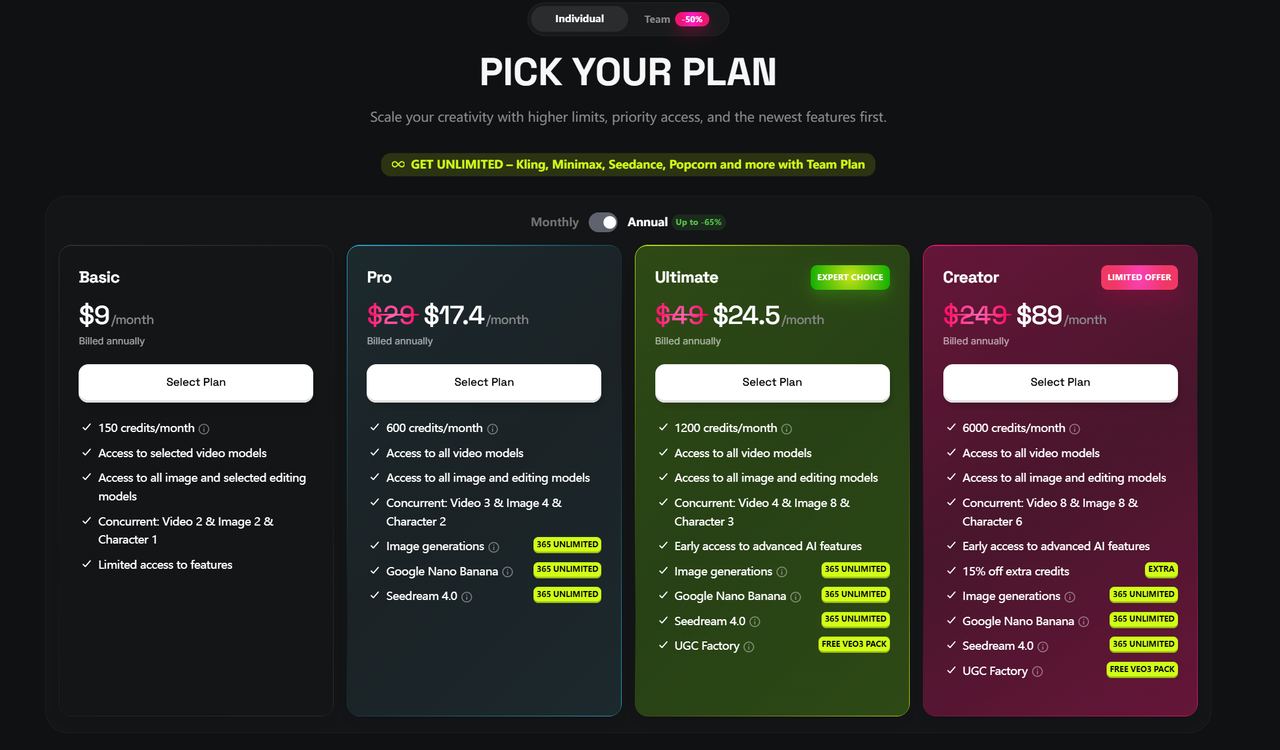
Pros & Cons
| Pros | Cons |
|---|---|
| Fast, approachable UI and presets for non-experts. | Identity drift on longer clips; not perfect for production VFX. |
| Powerful cinematic model (Sora 2) + camera control. | Occasional artifacts around hair/edges in swaps. |
| Dedicated Lipsync Studio & talking avatar flows — great for personalization. | Privacy/ethical concerns: get consent & use watermarks where necessary. |
| Useful instant-ad tooling (paste URL → ad-ready clip). | Advanced control has learning curve; advanced fixes need an editor’s touch. |
Who should use Higgsfield?
- Yes: marketers, social creators, community managers, small studios that need fast personalized assets, and anyone making short UGC.
- Maybe: indie filmmakers for concept work and storyboards (not final VFX).
- No: productions requiring flawless, frame-by-frame identity preservation for legal/media reasons (unless you pair outputs with heavy manual compositing).
Final verdict & rating
Higgsfield’s face effects are more than gimmicks — they’re practical tools for creative personalization, fast marketing, and playful content. They’re not yet a drop-in replacement for professional face-replacement VFX in high-stakes projects, but for the vast majority of social and marketing use-cases they deliver massive time savings and delightful results.
Rating: ★★★★☆ (4.0 / 5) — strong, practical, playful; use responsibly.
Call-to-action: Try a quick Lipsync Studio or Face Swap with your own selfie and a short target clip — test 1–2 short renders to see how identity holds before committing to heavy edits. And, as usual: get consent before using someone’s likeness.
P. S. If you are also looking for an alternative for content creation, check Lovart, an all-in-one AI design agent for your life and job!
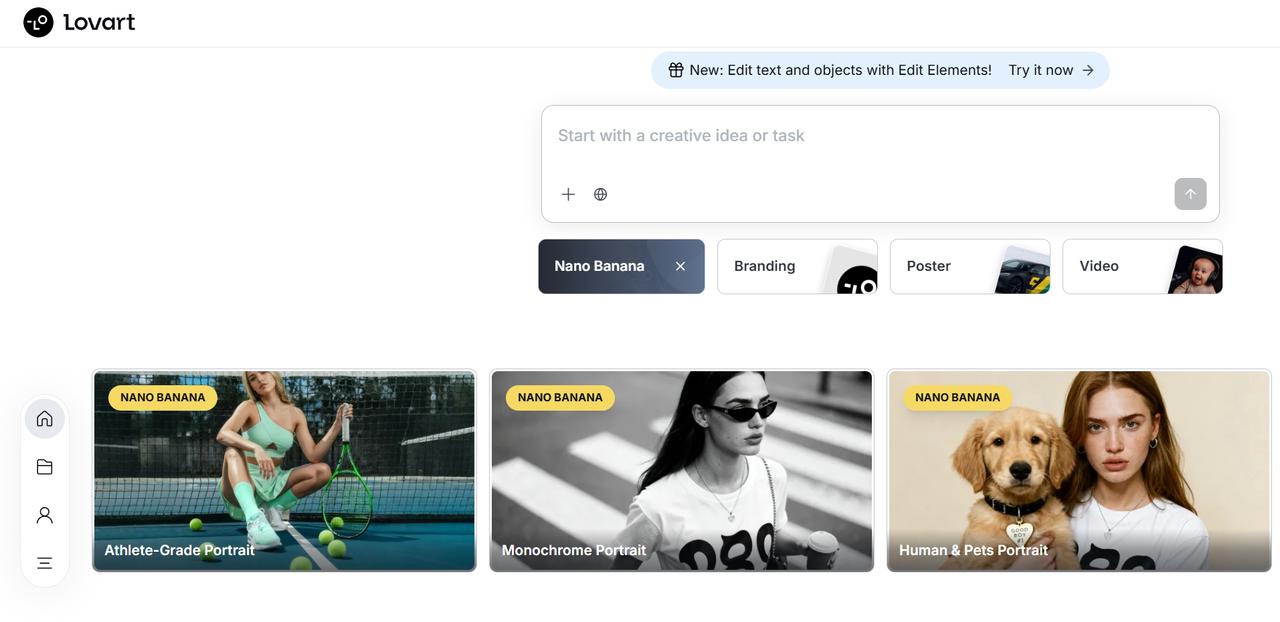

Compartilhar Artigo

